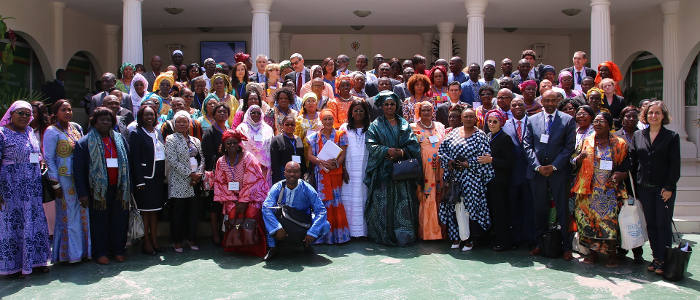
19/05/2016
Spanish Cooperation, through the APIA Programme, enabled the participation of representatives of Mauritania, Mali, Niger, and Nigeria at the Regional Conference for West Africa.
03/07/2015
21/05/2015
15/06/20115
30/03/2015
The Regional Conference for West Africa, held in Dakar, addressed the need to enforce laws prohibiting female genital mutilation, with the objective of improving enforcement of the United Nations General Assembly Resolution (Resolution 69/150) prohibiting this practice.
Spanish Cooperation, through the APIA Programme (Support for Inclusive Public Policies in Sub-Saharan Africa), managed jointly by the International and Ibero-American Foundation for Administration and Public Policies (FIIAPP) and the Spanish Agency for International Cooperation for Development (AECID), made it possible for representatives from Mauritania, Mali, Niger, and Nigeria to participate.
The conference was attended by senior officials from 14 countries of the Economic Community of West African States (ECOWAS) and Mauritania, including the women’s affairs, health and justice ministers from all of them; diplomats, such as Italian and Spanish ambassadors; and representatives of international bodies in the United Nations system.
During the conference, the Spanish ambassador to Senegal, Alberto Virella, emphasised that ‘total eradication of FGM requires a revision of the overall strategy for addressing this problem more effectively in those areas where unsatisfactory results have been obtained up to now, because there are many barriers in the form of traditional social-culture practices that require new approaches’.

Resolution 69/150
Resolution 69/150 of the United Nations General Assembly, the object of this conference, represents the fundamental starting point in the fight against this human rights violation affecting women and girls, and a benchmark for the protection of the victims and prosecution of the perpetrators of this practice.
The current challenge is for the countries to harmonise their national legislation and political, legislative, and legal framework for the prohibition of female genital mutilation (FGM) in accordance with this resolution and the international trade agreements ratified by the majority of Sub-Saharan African states, including Senegal.